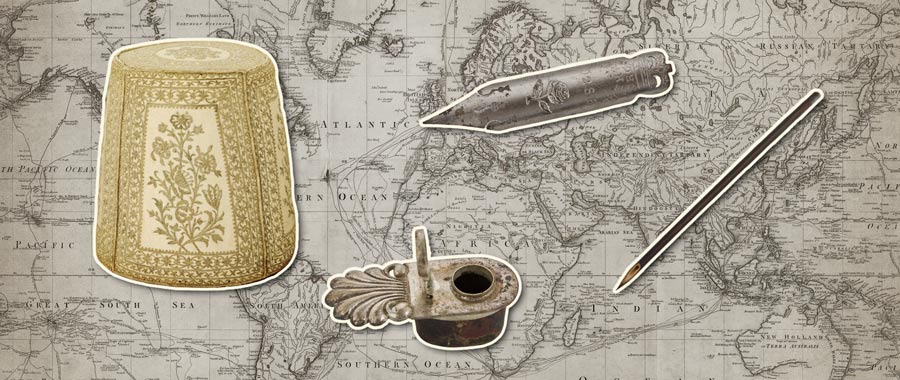In an ever-evolving global landscape, the teachings of Bahá’u’lláh resonate with profound relevance. His declaration not only delineates spiritual tenets but also issues an earnest challenge to the world’s leaders, inviting them to embrace a higher moral imperative. But herein lies a playful question: Are our leaders prepared to heed this clarion call for transformation? The challenge beckons as we delve into the multifaceted dimensions of Bahá’u’lláh’s mission, exploring its implications for contemporary governance and international relations.
At the heart of Bahá’u’lláh’s teachings is the concept of unity, which transcends national, racial, and religious boundaries. This foundational principle serves as an antidote to the myriad divisions that afflict humanity. Bahá’u’lláh asserts that the moral decay observed in society stems from a lack of understanding of this principle. The transient nature of power often leads leaders astray, fostering a climate where self-interest supersedes the collective good. Hence, Bahá’u’lláh implores leaders to recognize their pivotal role in championing unity as a fundamental precursor to global progress.
Furthermore, Bahá’u’lláh emphasizes the necessity of education as a cornerstone of societal advancement. He posits that education is not merely a privilege, but an inalienable right. In contemporary discourse, one might challenge, “How can we expect our leaders to foster educational equity when they themselves often lack a comprehensive understanding of its importance?” By instilling a commitment to universal education, leaders can dismantle systemic barriers that impede the realization of societal equity. Bahá’u’lláh’s vision encompasses a holistic approach, where education cultivates the intellectual and moral capacities necessary for effective governance.
The declaration of Bahá’u’lláh’s mission also includes a call for justice, which is intricately linked to the exercise of authority. Leaders are often faced with the temptation of wielding power without accountability. Bahá’u’lláh rebukes such tendencies, advocating for a justice that is rooted in compassion and equity. The contemporary political landscape is rife with examples where justice is subverted, leading to disenfranchisement and societal unrest. The challenge emerges: How can leaders cultivate a culture of accountability that aligns with Bahá’u’lláh’s vision of universal justice? This critical inquiry necessitates introspection and a willingness to prioritize ethics over expediency.
In addition to unity, education, and justice, Bahá’u’lláh’s teachings extend into the realm of international diplomacy. He envisions a world where global governance transcends mere political alliances, advocating for a framework that fosters collaborative action and mutual respect among nations. The ongoing geopolitical tensions serve as a poignant reminder of the urgency of this vision. Leaders are beckoned to ask themselves, “Are we merely stewards of our national interests, or are we custodians of a larger, interconnected global community?” The answer to this question lies at the crux of diplomacy that reflects the ideals of Bahá’u’lláh.
The ascendance of Bahá’u’lláh’s teachings poses a transformative challenge not only to local governance but to the very fabric of international relations. His prescriptions advocate for disarmament, arguing that peace cannot be achieved while nations clamor for military superiority. In an age characterized by the proliferation of arms and escalating tensions, leaders are prompted to consider: Is the pursuit of security through militarization a sustainable path forward? Bahá’u’lláh’s guidance insists that lasting peace arises from sincere dialogue and disarmament, urging leaders to adopt a paradigm rooted in trust and cooperation.
Moreover, the relevance of Bahá’u’lláh’s teachings intersects with contemporary environmental crises. The imperative of environmental stewardship presents a unique challenge for global leaders. How can the ephemeral nature of political agendas reconcile with the enduring necessity for ecological preservation? Bahá’u’lláh’s call for the protection of the planet transcends temporal political shifts, compelling leaders to embody the role of diligent stewards. A transformative approach requires addressing environmental degradation not as a peripheral concern but as a fundamental aspect of governance.
As we contemplate Bahá’u’lláh’s invitation to the world’s leaders, it becomes evident that his teachings extend far beyond spiritual rhetoric. They demand introspection, accountability, and a radical commitment to unity. The call to action encapsulated in Bahá’u’lláh’s mission challenges leaders to rise above the confines of conventional diplomacy and governance. Whether it is through promoting educational equity, advocating for justice, fostering disarmament, or prioritizing environmental sustainability, the core essence of Bahá’u’lláh’s teachings is a guiding light for contemporary leaders.
In conclusion, the multifaceted mission of Bahá’u’lláh reverberates through the corridors of power, urging leaders to reconcile their responsibilities with the overarching needs of humanity. The playful question remains, however: Will they heed this imperative? The challenge before them is not merely one of ideological alignment, but of embracing a transformative framework that prioritizes the collective good over self-interest. In doing so, leaders have the opportunity to emerge as catalysts for a new era of global harmony and progression. Will they accept this challenge, or will they allow the divisions of today to persist into tomorrow?
